The Supreme Vocation for Serving
From my book Apocalipse sem medo - 1999 não anulou as profecias [The Apocalypse Without Fear — 1999 did not nullify the prophecies], according to the specialized press it was the biggest-selling book at the 16th International Book Biennial of São Paulo, which took place between April 28 and May 7, 2000, I excerpt:
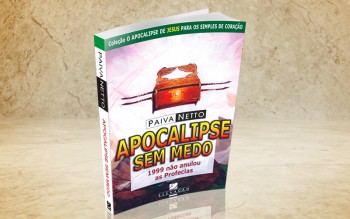
The Apocalypse Without Fear
For many people it may seem that the planet is inexorably moving towards a dead-end. This is reinforced by the mass of not always pleasant news with which we are assailed at every turn. This is the reality. But if we assimilate the supreme vocation for serving, a term that grants us the status of creatures that are useful to the community, we shall notice new and more correct horizons. The learning we acquire will indicate real benefits as we become involved with the sacred act of extending a hand to those who need it (The Gospel of Jesus according to Matthew 10:8). This is the feeling that moves many people who shaking off their pessimism move forward, believing in and acting for a better society. To a certain extent the generations that preceded us acted thus; if not where would we be today?
What does the Apocalypse talk to us about?
The world is struggling against an impasse, summed up in the now undeniable global warming. According to the Folha de S.Paulo newspaper, quoting as its source Deborah Zabarenko from Reuters, a major oil conglomerate funded a denial of the greenhouse effect and highlights: “A report from the Union of Concerned Scientists compares the company’s strategy with that employed by the tobacco companies.”
What does the Apocalypse tell us about this matter? What has it been announcing for almost two thousand years, not forgetting to analyze it without taboos or prejudice? Would it be the harmful climate changes on the planet that welcome us with no distinction? In the report of the seven plagues, chapter 16 of the prophetic text, this is well indicated. The consequences of progress, when it is irresponsible, are there for all to see; it can no longer be hidden. It behooves governments to govern for the people before they become uncontrollable, impelled, for example, by a lack of water, which, it is said, will be one of the next reasons for war.
Something of a statesman and Ecumenical Spirituality
Also from the book The Apocalypse Without Fear, in the chapter “The Berlin Wall and the Spiritual World III,” I bring this excerpt:
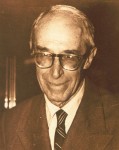
Pietro Ubaldi
In order to have sufficient authority capable of providing the masses with education, support and work and pointing out to them the paths of renewal, the alert religious person will have to be something of a statesman, and the top statesman will not be able to dispense with Ecumenical Spirituality, that is, the spirituality completely free from all kinds of fanatical sectarianism. The ministry—whether religious, ideological, political, philosophical, artistic, scientific and so forth—is to expand Brotherhood and Solidarity and to exalt human dignity. For this sincere feeling a great nobility prevails: to serve, which is the superior quality of power, as stated by the Italian philosopher and sociologist Pietro Ubaldi (1886-1972) in his book “The Great Synthesis”: “The supreme command is simply supreme obedience.”
Sic transit...
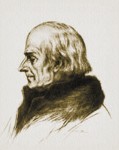
Gerard Groote

Thomas a Kempis
All else is fleeting, as Gerard Groote (1340-1384) and Thomas a Kempis (1379-1471) thought in the 14th century; the latter was a humble priest, to whom for a long time was attributed the sole authorship of one of the most important works of the religious and social history in the world: The Imitation of Christ. In its pages there is the following admonition that has come down to us through the ages:
“O quam cito transit gloria mundi!”: Oh! How quickly the glory of the world passes away!
Ernest Renan (1823-1892) was right: What makes a fatherland is Solidarity.
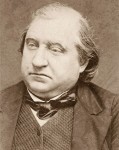
Ernest Renan
And the Earth, by extension, which we must free from the ruins of a mindless progress, managed by the falsehoods of those whose greatest skill is to lie to the multitudes, even while weakening them or killing them. However, there is always a solution when Human Beings make an effort.
* * *
Charity: the Ideology of ideologies
In my most recent book É urgente reeducar! [It Is Urgent to Reeducate!]*, I included some excerpts from Cidadania do Espírito [Citizenship of the Spirit]. Item 41—which I added to the new edition of the book, launched at the 21st International Book Fair of São Paulo—has a lot to do with what I deal with in this study:
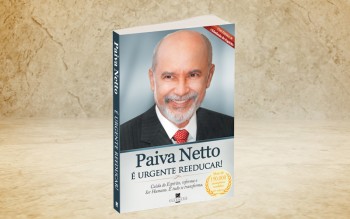
It Is Urgent to Reeducate!
Love, Harmony, Solidarity, spirit of Justice connected to Kindness, never to revenge; Liberty with respect for other Human Beings; Truth without social, political, philosophical, religious or scientific fanaticism; Aid to those who suffer in body or soul; Politics and Economics followed by the virtues of Correction and Generosity; Instruction, Education, Reeducation, according to the Ecumenical Brotherhood. Therefore, everything that makes creatures strong in Peace or war, on Earth and in the Invisible World, which is not an abstraction, forms the conclusive concept of ideology for the Citizen of the Spirit: Charity. In other words, the moral air that we, as truly civilized beings, should breathe.
_____________________________
* É Urgente Reeducar! [It Is Urgent to Reeducate!] — Saraiva Bookstore informed that Paiva Netto was the biggest-selling Brazilian author on its booth at the 21st International Book Fair of São Paulo, held in August 2010.
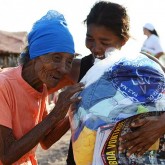
The comments do not represent the views of this site and are the sole responsibility of their authors. It denied the inclusion of inappropriate materials that violate the moral, good customs, and/or the rights of others. Learn more at Frequently asked questions.